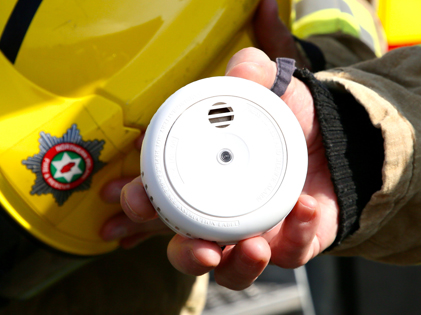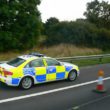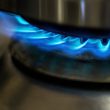
Northern Ireland Fire and Rescue Service (NIFRS) has issued a home fire safety appeal following a spike in accidental house fire deaths and incidents.
8 people have tragically lost their lives in house fires since November 2022. There has also been a 14% increase in incidents. Against the backdrop of the increased cost of living, NIFRS is asking the public to do all they can to keep themselves, their families and neighbours safe from fire as the high risk winter period continues.
The calls come following the tragic death of a male in the Edinbugh Park area of Omagh on Wednesday January 18.
3 Fire Appliances attended the a blaze in a 2 storey terraced house – 1 from Omagh, 1 from Dromore and 1 from Fintona. Firefighters rescued a man from the house and extinguished the fire.
Firefighters administered first aid to the casualty, but tragically he died at the scene.
NIFRS is urging everyone to check in on elderly relatives or neighbours to ensure they have working smoke alarms and that they are aware of the items in their home that can cause a fire and know how to use them safely– this is especially important for those in our community who live alone.
Northern Ireland Fire and Rescue Service (NIFRS) Assistant Chief Fire and Rescue Officer, Aidan Jennings said:
“The thoughts and sympathies of NIFRS continue to be with the family and friends of those who have tragically lost loved ones in accidental house fires. We are acutely aware of fire safety at this time of year and we are appealing to the public to help us keep you, your families and neighbours safe by reducing the risk of fire in the home.”
You can reduce the risk of fire by following our STOP Fire message –
Smoke alarms – Make sure you have working smoke alarms in your home;
Test alarms weekly – Test your smoke alarms at least once a week;
Obvious dangers – Be aware of the items in your home that might cause a fire and ensure you’re using them safely;
Plan your escape – Have an escape plan in place if a fire does occur.
Assistant Chief Fire and Rescue Officer, Aidan Jennings continued:
“The winter months are always much busier for us and this year with the increased cost of living, we know many people will be trying to save money when heating their homes. We want to ensure people don’t put themselves at additional fire risk as a result. The most common causes of accidental fires in the home are cooking, electrics and smoking materials, however in winter months we need to also add in the fire risks associated with the increased use of open fires, stoves, portable heaters, electric blankets and candles.
“There are simple steps you can take to reduce the risk of fire in your home. Please keep warm safely- if you’re using portable heaters and electric blankets make sure they’re in good working order. Ensure you leave enough space around portable heaters so they don’t accidently set fire to soft furnishings, such as curtains, blankets or arm chairs.
“We have seen a 15% increase in chimney fires this December in comparison to last December. If you’re planning to use a fire you haven’t used in a while, make sure a suitably trained person services your chimney beforehand, use a fire guard and have a Carbon Monoxide alarm in the same room as your open fire or fuel burning stove.
“I would also urge everyone to ensure they have working smoke alarms and test them regularly. If you don’t have working alarms this will affect your ability to notice a fire and escape quickly – especially at night.
“I’d like to encourage any member of the public who is over 50, or anyone with impaired mobility or a disability to contact us to arrange a free Home Fire Safety Check. If you think someone you know might be at risk, please take time to ask them about their fire safety and if you have any concerns please get in touch with us.
“Fire prevention is at the heart of what we do at NIFRS. Please remember that we are here to support you.”



